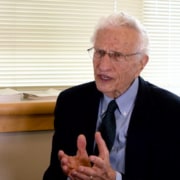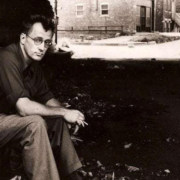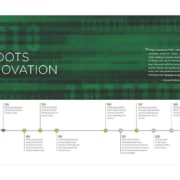Allan Nevins and the Roots of Historical Consulting
Allan Nevins was a journalist, biographer, oral historian, and chronicler of corporations. He was never officially a historical consultant. His life’s work, however, set standards that every historian worth his or her hire should follow, namely: that history should be well-written, that it should be informed by lived experience through oral history, and that it should deal empathetically yet honestly with institutions—even if they are footing the bill.
Once the great American histories were written by literary gentlemen. As historians professionalized in the late 19th century, however, they traded broad subjects and popular audiences for specialized monographs and audiences of fellow academics. Early on Nevins wanted no part of that—he made his living as a journalist. But Nevins could not stay away from history. In his spare time he began writing biographies for a lay audience, one of which won a Pulitzer Prize. In 1931 Columbia University made Nevins a full professor, even though he had never earned a PhD.
His first books were relatively uncontroversial biographies of politicians and presidents, but in the 1940s Nevins took up the life of John D. Rockefeller. Convinced by the rise of the wartime “Arsenal of Democracy” that there was a creative as well as a destructive side to the great American business enterprises, Nevins offered an unusually balanced portrayal of the man historians had previously preferred to vilify.
By then Nevins was also champion of a new methodology: “oral history.” Having been a journalist, he understood the importance of the interview. Nevins also realized that as the documentary record gave way to the telephone, historians had to find new ways to capture the past. In 1948 he founded an ongoing oral history program at Columbia.
It was in the 1950s that Nevins came closest to becoming a historical consultant, as co-author of a multi-volume history of the Ford Motor Company. Not surprisingly, Nevins approached Henry Ford and his company with an open mind, drew upon oral history, and crafted an engaging and edifying story. “It requires imagination to penetrate the past,” Nevins wrote. It also required imagination to work for Ford without working for Ford. Although the company had commissioned Nevins to write the history, it sent the checks to Columbia University.








 Public
Public

Trackbacks & Pingbacks
[…] grew more specialized and less interested in institutions. Two biographers led the field. Alan Nevins attempted to craft compelling and contemporary history that met academic standards. Marquis James, on the other hand, favored more historically remote subjects and a more sensational […]
Comments are closed.